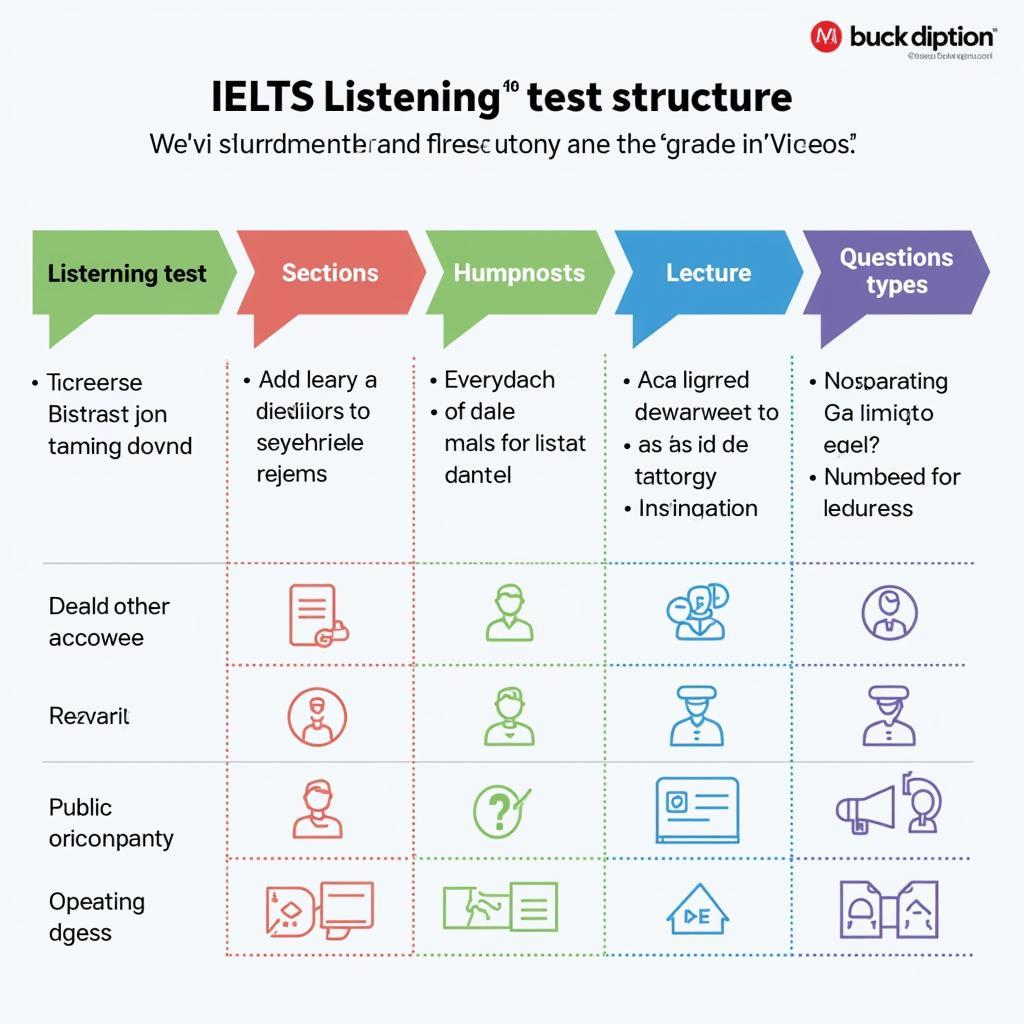The IELTS Listening module presents unique challenges that require strategic preparation and focused practice. As an experienced IELTS instructor, I’ve helped countless students enhance their listening performance through proven techniques and targeted strategies. Let’s explore comprehensive methods to boost your IELTS Listening band score.
Understanding the IELTS Listening Test Format
Before diving into specific strategies, it’s crucial to understand what you’re facing. The IELTS Listening test consists of four sections, progressing from simpler everyday conversations to more complex academic discussions. Each section presents distinct challenges and requires different approaches.

Section Breakdown
- Section 1: Everyday social context conversation
- Section 2: Monologue in a social context
- Section 3: Discussion between up to four speakers in an educational context
- Section 4: Academic lecture or presentation
Essential Strategies for Score Improvement
1. Develop Prediction Skills
One of the most effective ways to improve understanding of spoken instructions in IELTS listening is through prediction. Before each section begins:
- Read questions carefully during preparation time
- Highlight keywords in questions
- Anticipate possible answers based on context
- Consider synonyms and paraphrasing
2. Master Note-Taking Techniques
Effective note-taking is crucial for recognizing contradictions in audio. Develop these skills:
- Use abbreviations and symbols
- Focus on key information (numbers, dates, names)
- Create personal shorthand systems
- Practice speed writing
3. Vocabulary Enhancement
When handling technical listening vocabulary, focus on:
- Common academic terms
- Numbers and measurements
- Place names and directions
- Time expressions
- Descriptive language
4. Time Management
Learning how to manage time during long IELTS listening passages is essential. Practice:
- Quick question analysis
- Efficient answer transfer
- Multi-tasking (listening while writing)
- Strategic use of breaks between sections
5. Speed and Accuracy
To excel in improving speed in answering questions, focus on:
- Reading ahead while listening
- Identifying answer patterns
- Practice with timed exercises
- Regular mock tests
Practice Techniques
- Daily Listening Routine
- BBC News podcasts
- Academic lectures
- TED Talks
- Documentary excerpts
- Native speaker conversations
- Focused Practice Sessions
- Single section practice
- Full test simulation
- Specific question type drilling
- Answer review and analysis
Expert Tips from Practice
“The key to IELTS Listening success lies in consistent practice with varied accents and speaking speeds,” says Dr. Sarah Thompson, Senior IELTS Examiner with 15 years of experience.
Common Questions About IELTS Listening
FAQ
-
How long should I practice listening daily?
Aim for 30-45 minutes of focused practice each day. -
Which accent should I focus on?
Practice with various English accents, including British, American, Australian, and Canadian. -
How can I improve my concentration?
Regular meditation and focused listening exercises can help enhance concentration. -
What’s the best way to practice at home?
Use official IELTS practice materials combined with real-world listening resources. -
How do I handle fast speakers?
Start with slower recordings and gradually increase speed as your skills improve.
Final Thoughts
Improving your IELTS Listening band score requires dedication, strategic practice, and the right approach. Focus on developing comprehensive listening skills while maintaining accuracy in your answers. Remember that consistent practice with authentic materials is key to achieving your desired band score.
Start implementing these strategies today, and you’ll see significant improvement in your IELTS Listening performance. Good luck with your preparation!